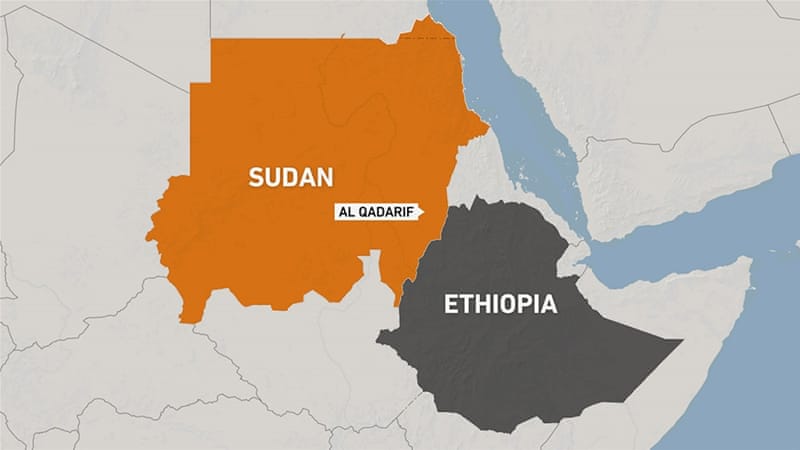

ADDIS ABABA, Ethiopia — Ethiopia’s deputy army chief on Friday said his country will strongly defend itself and will not negotiate its sovereignty over the disputed $4.6 billion Nile dam that has caused tensions with Egypt.
“Egyptians and the rest of the world know too well how we conduct war whenever it comes,” Gen. Birhanu Jula said in an interview with the state-owned Addis Zemen newspaper, adding that Egyptian leaders’ “distorted narrative” on Africa’s largest hydroelectric dam is attracting enemies.
He accused Egypt of using its weapons to “threaten and tell other countries not to touch the shared water” and said “the way forward should be cooperation in a fair manner.”
He spoke amid renewed talks among Ethiopian, Sudanese and Egyptian water and irrigation ministers after months of deadlock. Ethiopia wants to begin filling the dam’s reservoir in the coming weeks, but Egypt worries a rapid filling will take too much of the water it says its people need to survive. Sudan, caught between the competing interests, pushed the two sides to resume discussions.
The general’s comments were a stark contrast to Ethiopian Prime Minister Abiy Ahmed’s remarks to lawmakers earlier this week that diplomacy should take center stage to resolve outstanding issues.
“We don’t want to hurt anyone else, and at the same time it will be difficult for us to accept the notion that we don’t deserve to have electricity,” the Nobel Peace Prize laureate said. “We are tired of begging others while 70% of our population is young. This has to change.”
Talks on the dam have struggled. Egypt’s Irrigation Ministry on Wednesday called for Ethiopia to “clearly declare that it had no intention of unilaterally filling the reservoir” and that a deal prepared by the U.S. and the World Bank in February serves as the starting point of the resumed negotiations.
Ethiopia refused to sign that deal and accused the U.S. of siding with Egypt.
Egypt said that in Tuesday’s talks, Ethiopia showed it wanted to re-discuss “all issues” including “all timetables and figures” negotiated in the U.S.-brokered talks.
President Abdel-Fattah el-Sissi discussed the latest negotiations in a phone call with President Donald Trump on Wednesday, el-Sissi’s office said, without elaborating.
Egypt’s National Security Council, the highest body that makes decisions in high-profile security matters in the country, has accused Ethiopia of “buying time” and seeking to begin filling the dam’s reservoir in July without reaching a deal with Egypt and Sudan.
___
Samy Magdy in Cairo contributed.
Source: New York Times
more recommended stories
 President Irro’s Diplomatic Reset: A Bold Step Toward Somaliland’s Recognition
President Irro’s Diplomatic Reset: A Bold Step Toward Somaliland’s RecognitionBy Abdi Jama Hargeisa — The.
 Somaliland Pursues Peace: First POW Exchange with Puntland Completed
Somaliland Pursues Peace: First POW Exchange with Puntland CompletedPresident Irro’s Dialogue-Based Approach Gains Momentum.
 From 1960 to Today: Somaliland’s Unbroken Case for Statehood
From 1960 to Today: Somaliland’s Unbroken Case for StatehoodSomaliland’s Foreign Minister Reaffirms Sovereignty, Urges.
 Gogol or Goodbye? Somalia’s Last Opportunity for Federal Reconciliation
Gogol or Goodbye? Somalia’s Last Opportunity for Federal ReconciliationBy Abdirahsid Elmi & Mohamed Musa.

